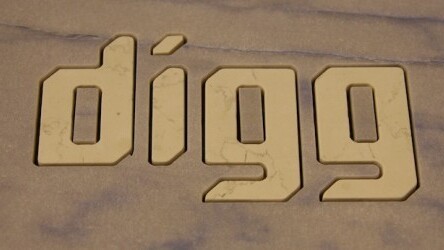
Digg on Tuesday released the results of its second Google Reader survey, which it conducted last week. In the process, the company revealed what sharing and “Read later” services it will integrate into its offering, what proportion of users are willing to pay for it, and that a beta of its reader will be launching in June.
Digg sent out this survey to over 18,000 people who signed up out of interest for a Google Reader replacement. The company says it received more than 8,600 responses this time (compared to 8,000 responses for the first one it sent out to 17,000 people).
Nearly half of all respondents said that they never used Google Reader’s social features when it had them, just 17 percent said that they used them often, and Digg noted it may not offer “robust social functionality” at launch. Nevertheless, the company emphasized it ultimately believes social features are “an important part of the Digg experience.”
Digg found that about 55 percent of respondents share news via Facebook or Twitter, but over 75 percent still do so via email. Here’s the breakdown:
Digg says its reader will include “seamless sharing” to all these services. That means you can expect buttons for not just email, but also for Facebook, Twitter, Google+, Tumblr, Pinterest, and Path.
Next, as you can see above, Digg found that about two-thirds of respondents use a “Read later” service. Pocket, Instapaper, Evernote, and Readability are all popular options, and Digg says its goal is to support all of them.
Last but not least, Digg looked at pricing. The results are not too surprising; most don’t want to pay, but a large group are willing when it comes to a Google Reader replacement:
The company wouldn’t reveal what this means for the pricing of its product. There was, however, a very strong hint that it prefers a pay-for option and that it doesn’t like the idea of selling ads:
Free products on the Internet don’t have a great track record. They tend to disappear, leaving users in a lurch. We need to build a product that people can rely on and trust will always be there for them. We’re not totally sure how pricing will work, but we know that we’d like our users to be our customers, not our product. So when we asked survey participants whether or not they would be willing to pay, we were pleased to see that a majority said yes.
Digg could offer just a pay-for option, but then it would lose out on about 60 percent of survey respondents. That number is likely much higher if you consider all those who didn’t respond to the survey, most of whom probably aren’t as excited for the upcoming reader. We’re therefore guessing that Digg will offer free and paid versions.
As for the June deadline for a beta release, Digg is cutting it pretty close. Remember: Google is killing Reader on July 1.
See also – Digg announces plan to build an RSS reader with ‘the best of Google Reader’s features,’ including its API and Digg says it’s serious about building a replacement for Google Reader, outlines its focus
Top Image credit: LaughingSquid / Flickr
Get the TNW newsletter
Get the most important tech news in your inbox each week.








